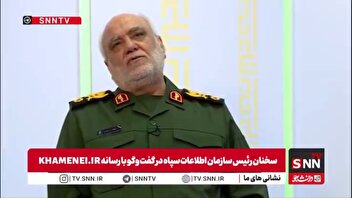VPN-using Iranians angry after X locations reveal officials using state-issued SIMs
VPN-using Iranians angry after X locations reveal officials using state-issued SIMs

Iranians have accused officials and pro-government figures of hypocrisy after X's new location feature appeared to reveal them using Iran-based SIMs, despite a ban on the social media site.
Along with most other foreign social media outlets, X is officially banned in Iran and requires a VPN to use - despite many government officials still being on the site.
X recently introduced a new feature allowing users to see the location of accounts, which revealed that a variety of Iranian officials - including Information and Communication Technology Minister Sattar Hashemi - were based in Iran, suggesting they were not using a VPN.
Iranian social media users complained that the government and some of its supporters had been given access to filter-free "white SIM cards" that allowed them to use otherwise blocked sites.
Both "White SIM Card" and "Class-based Internet" began trending on X among Iranians over the revelations.
Mani Ghasemi, chair of tech site Digiato, criticised Hashemi and other reformist politicians for using the SIMs, which he said made their claims of opposition to internet censorship ring hollow.
"How can we expect you to understand the pain of filtering when you yourself use a white SIM card?" he wrote on X.
"How can we expect you to fight to fix it?"
A two-tiered system?
The Iranian government heavily restricts use of social media sites, with YouTube, X, Facebook and Instagram blocked.
They have also attempted to crack down on the use of VPNs, though many Iranians have managed to circumvent this.
President Masoud Pezeshkian, a reformist, has promised to look at loosening Iran's tight internet restrictions, which are partly aimed at pushing users onto Iran-exclusive websites.
When asked last year, Hashemi gave a seemingly non-committal answer as to whether they would overturn internet restrictions.
"This is not a question to be answered with a yes or no. Some lawful management of this issue should occur," he told the country's parliamentary news agency.
"But naturally, people have needs in this regard, and it must be managed in an intelligent way."
Critics point out that certain outlets and officials close to powerful institutions in Iran have been given special privileges with regards to internet access.
The Fars and Tasnim news agencies, which are close to the Islamic Revolutionary Guard Corps, apparently enjoy unfiltered internet access and are among those with X accounts based in Iran.
A number of officials and journalists appeared to change the location of their accounts from Iran to "West Asia" following the controversy.
One of those who did so, journalist Vahid Khatami, wrote on X that "for a journalist, having unrestricted internet is a professional necessity".
Ali Ahmadinia, the head of the government’s public relations, said the administration would "seriously review" the distribution of "white SIM cards," which he said it had inherited from earlier governments.











